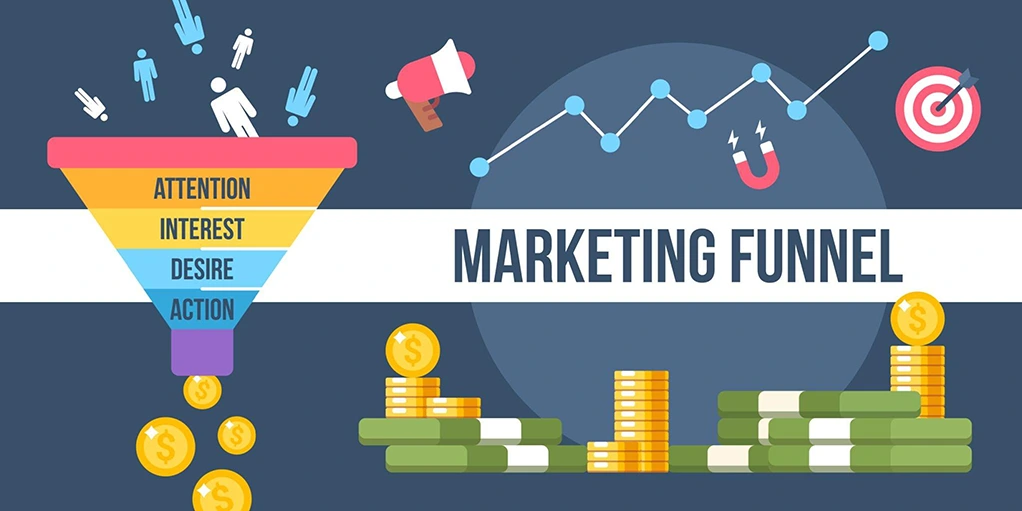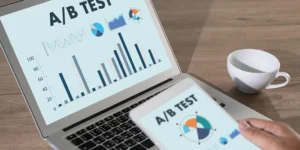In the dynamic world of digital marketing, understanding the digital marketing funnel is paramount. The concept of a marketing funnel is not new, but in the digital age, it has evolved and transformed into a powerful tool that can help businesses effectively navigate the online landscape. In this blog post, we’ll delve into the digital marketing funnel, what it is, why it’s essential, and how you can make it work for your business.
What is a Digital Marketing Funnel?
Imagine a funnel – wide at the top and narrowing down towards the bottom. In digital marketing, the funnel represents the journey that potential customers take, starting from the initial point of contact with your brand to making a purchase or taking the desired action. The digital marketing funnel is typically divided into several stages, each with its own purpose.
- Awareness: This is the stage at which potential customers learn about your brand, product, or service. They might find you through social media, search engines, or other online channels.
- Interest: At this stage, potential customers are showing interest in what you offer. They might read blog posts, subscribe to newsletters, or engage with your content on social media.
- Consideration: In this stage, leads are actively considering your product or service. They may compare your offerings with competitors, seek reviews, and generally research your brand more deeply.
- Intent: Here, your prospects are demonstrating a clear intent to make a purchase. They might add items to their cart, request a quote, or take other steps that indicate they are ready to buy.
- Conversion: This is the ultimate goal – the point at which a lead becomes a customer. They make a purchase, sign up for a subscription, or perform the specific action you’ve been guiding them towards.
- Retention: The journey doesn’t end with a conversion. Retention is about keeping your customers engaged and coming back for more. It’s significantly more cost-effective to retain existing customers than acquire new ones.
- Advocacy: The final stage involves turning your satisfied customers into brand advocates. They can help promote your products or services through word-of-mouth, referrals, or reviews.
Why is the Digital Marketing Funnel Important?
Understanding and utilizing the digital marketing funnel is crucial for several reasons.
- Guided Customer Journey: It provides a structured path for potential customers to move from awareness to conversion, ensuring a more guided and efficient customer journey.
- Efficient Resource Allocation: By knowing where customers are in the funnel, you can allocate your resources, time, and budget more effectively. For instance, you might invest heavily in awareness tactics to fill the top of the funnel and focus on conversion optimization as leads progress.
- Data-Driven Decision-Making: The funnel allows you to collect and analyze data at each stage. This data can inform your marketing strategies and help you make data-driven decisions.
- Personalization: With insights into where customers are in the funnel, you can tailor your marketing efforts to address their specific needs and interests.
- Improved Conversions: By understanding the funnel and optimizing each stage, you can significantly improve your conversion rates, leading to more sales or desired actions.
Making the Digital Marketing Funnel Work for Your Business
To make the digital marketing funnel work for your business, consider the following steps.
- Create Engaging Content: At the awareness and interest stages, focus on creating valuable and engaging content that resonates with your target audience.
- Lead Nurturing: Use email marketing, retargeting, and personalized recommendations to nurture leads as they move through the funnel.
- A/B Testing: Continuously test and optimize your funnel elements to improve conversion rates.
- Analytics: Use analytics tools to track customer behavior and gather insights that inform your marketing strategies.
- Customer Feedback: Collect and act upon customer feedback to improve the user experience and product offerings.
- Retargeting: Implement retargeting strategies to re-engage leads who didn’t convert the first time.
- Customer Support: Provide excellent customer support and post-purchase experiences to encourage retention and advocacy.
CONCLUSION
In Conclusion, Understanding the digital marketing funnel is essential for anyone seeking success in the digital marketing landscape. By creating a seamless and efficient customer journey, you can boost conversions, nurture customer relationships, and ultimately grow your business in the online world.
To know more about Digital Marketing, Please visit https://paypercampaign.com





